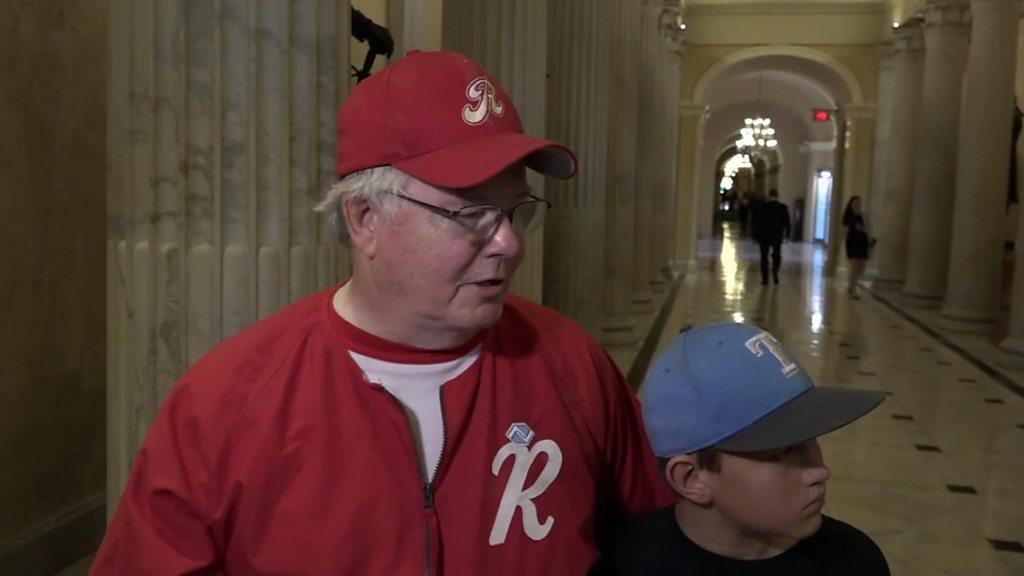Virginia shooting raises spectre, but not likelihood, of gun control
- Published
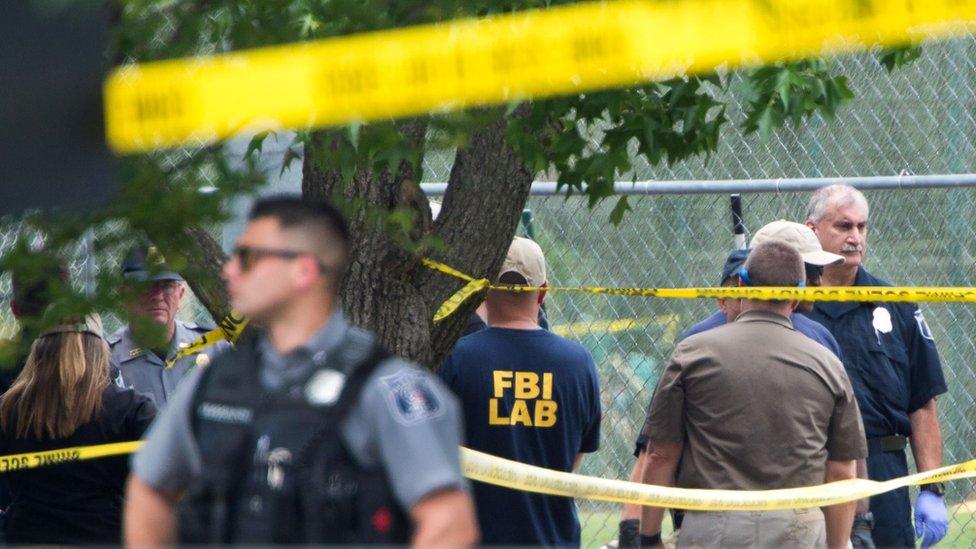
Five people were injured in the shooting at a baseball field on Wednesday
If every shooting in America is political, this one was especially so. James Hodgkinson, a 66-year-old man from Belleville, Illinois, opened fire at Republican congressmen at an early-morning baseball practice in Virginia, injuring five people including the House majority whip, Steve Scalise.
At a press conference from the scene, Virginia governor and Democrat Terry McAuliffe was the first to raise the spectre of gun control. "There are too many guns on the street," he said, before remarking that it wasn't the day for that debate. "If it's not the day for it why are you bringing it up?" replied a reporter.
A few others tentatively broached the issue. "We've got to stop the violence," said Bernie Sanders. "Senseless gun violence should have no place in our beautiful city or anywhere in our country," said California Democrat Jackie Speier.
On the other other side of the aisle, amid calls for unity from senior congress members, several Republican lawmakers reached for a well-worn response: more guns.
"I will be carrying when I'm out and about," Chris Collins, Republican representative from Buffalo, told WKBW. "On a rare occasion I'd have my gun in a glove box but it's going to be in my pocket from this day forward."
Barry Loudermilk, Republican from Georgia, called for congressmen to have a dispensation to carry guns in the capital, as his assistants do in his state. "If this had happened in Georgia," he said, the gunman "wouldn't have gotten too far".
Watch as baseball gunman opens fire
America has weathered far worse mass shootings than this without finding common ground on gun control, and analysts on both sides of the argument said Congress was unlikely to act simply because the bullets were flying close to home.
"Republicans have proven impervious to mass shootings and I don't think you'll see any reforms now," said Adam Winkler, a UCLA law professor and gun policy expert. "This will be business as usual, they will soon be saying that the answer is more guns and new freedoms, not new laws."
Many current congressional Republicans were ushered into their seats with the support of the National Rifle Association, including the injured Mr Scalise, who receives funding from the gun lobby group and has voted consistently against gun control measures.
The Republican-controlled House recently opposed expanding background checks for gun buyers and limiting access to assault rifles. "Congressmen, especially Republican congressmen, are very obedient to whatever the NRA tells them," said John Donohue, a Stanford law professor who studies gun policy.
The NRA has long banged the drum for a more armed citizenry - good guys with guns to stop bad guys with guns, the logic goes. But it "almost never happens" that an armed citizen stops a gunman, said Mr Donohue. "I just wrote a paper, external on this. Allowing citizens to carry freely on the street doesn't decrease crime, it increases it."
Eyewitness: 'I cried and laid flat on the ground'
On Twitter on Wednesday, supporters of each side accused the other of politicising the incident for its own ends. A broader context of deep-seated partisanship as well as representations of political violence - including Kathy Griffin's controversial recent Trump beheading - appeared to play into reactions to the shooting.
Donald Trump Jr retweeted a message connecting the shooting to a recent production of Julius Caesar, which featured the assassination of a ruler who resembles Donald Trump. "Events like today are EXACTLY why we took issue with NY elites glorifying the assassination of our President," the tweet read.
Newt Gingrich, the former house speaker, called the shooting "part of a pattern" of "increasing intensity of hostility on the left".
The problem in America is not guns but the state of the political discourse, said Dave Kopel, a gun rights advocate and director of libertarian think tank the Independence Institute. "If there is a change from this I hope that people on both sides begin to temper the more extreme and hysterical political rhetoric," he said.
There was one thing people across the political divide appeared to agree on in the wake of the attack on Wednesday - that amid the prayers for the wounded there was little prospect of any legislative change on gun rights, and plenty of resistance.
"Many gun control sceptics - and I agree with them - believe that restrictions would be futile," said UCLA professor and gun policy expert Eugene Volokh. "It would be a quixotic and empty attempt to disarm criminals that would seriously interfere with the rights of millions of law-abiding citizens.
"People just don't see that as a good cost-benefit scenario."
- Published15 June 2017
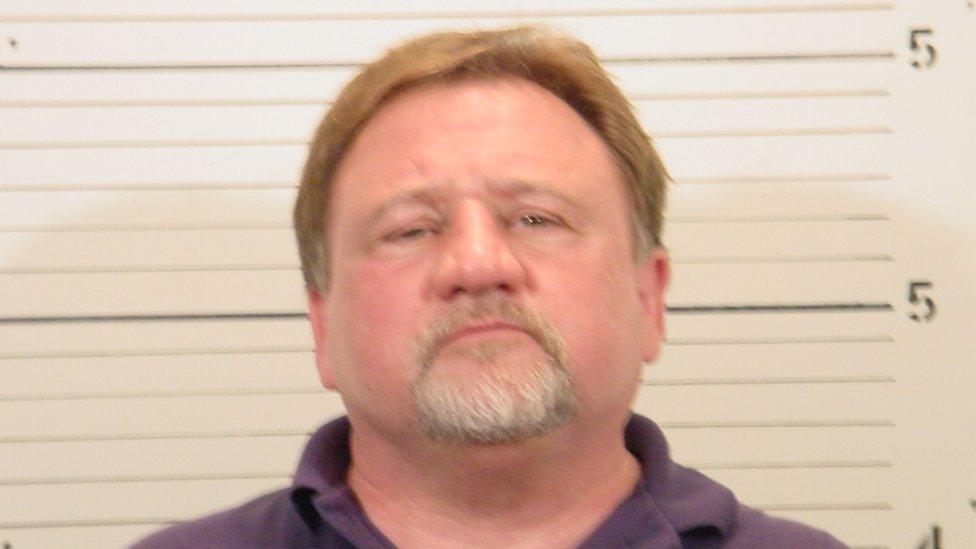
- Published14 June 2017
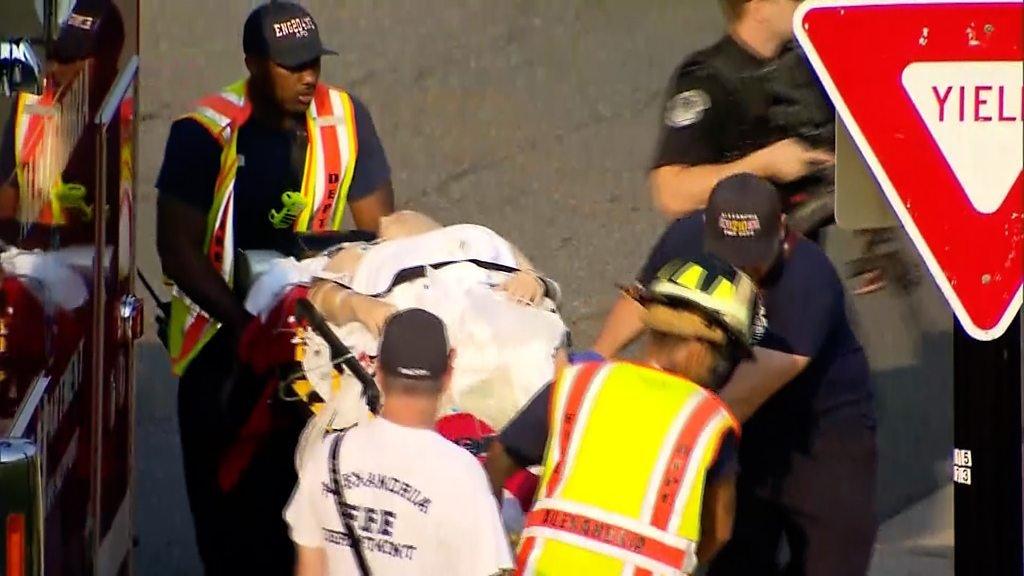
- Published14 June 2017
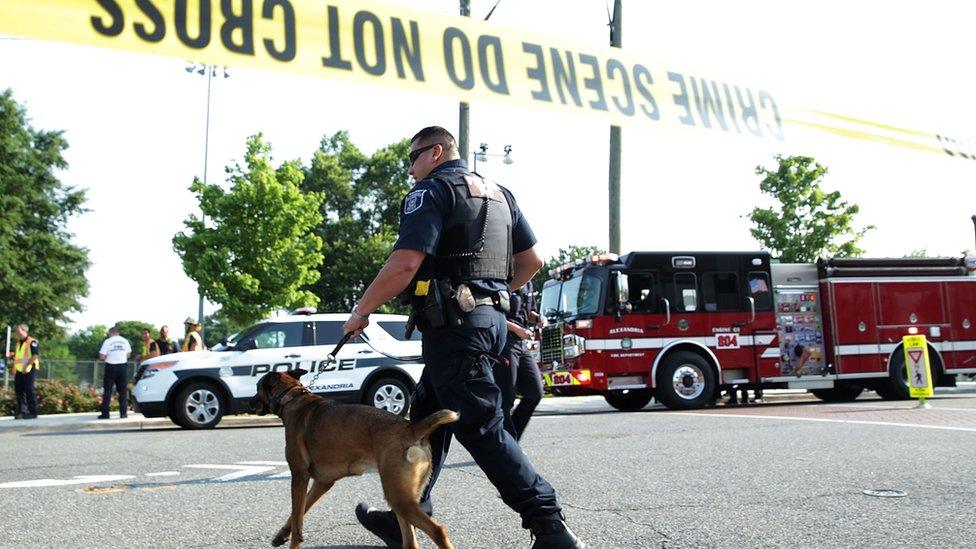
- Published14 June 2017
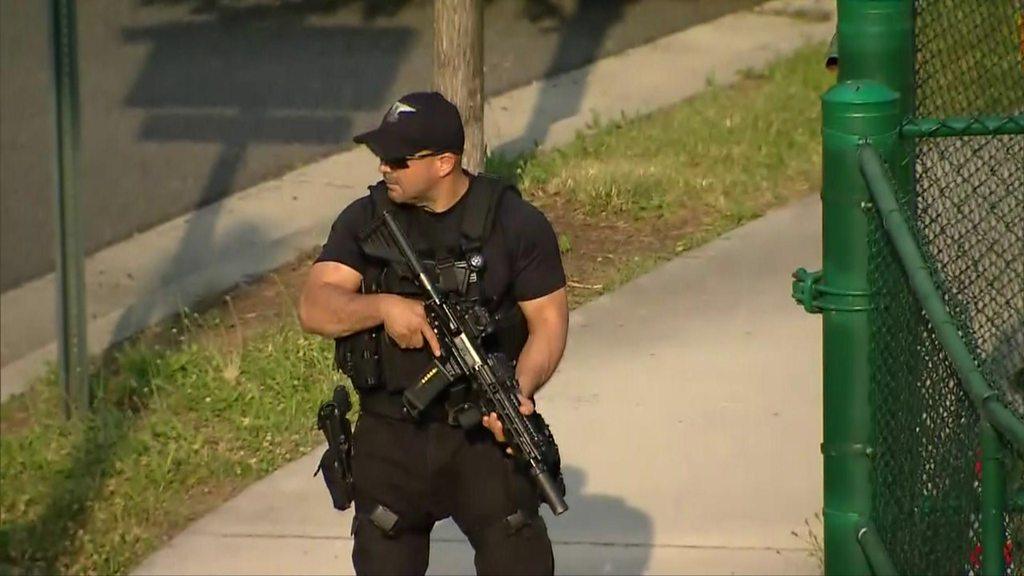
- Published14 June 2017
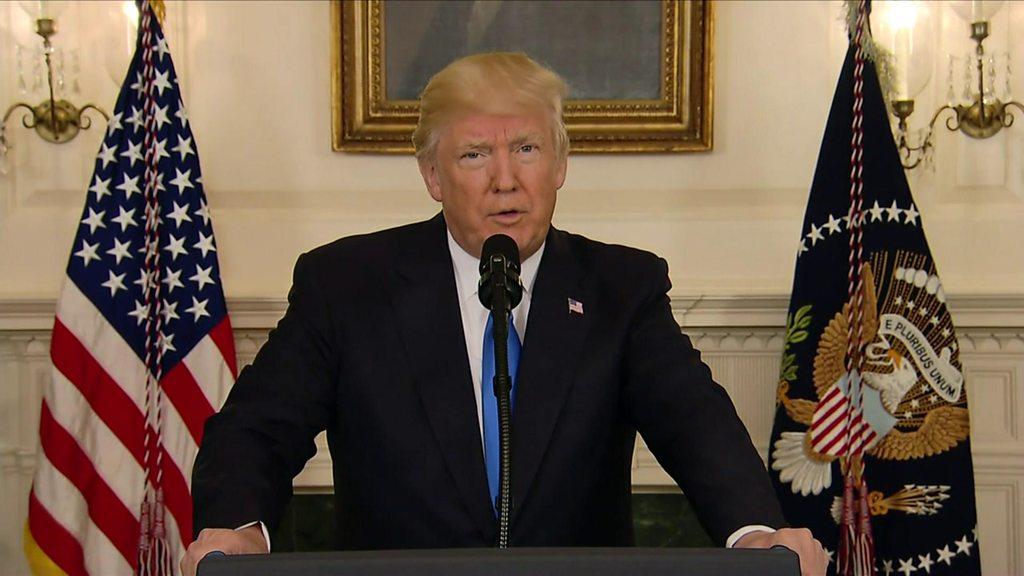
- Published14 June 2017
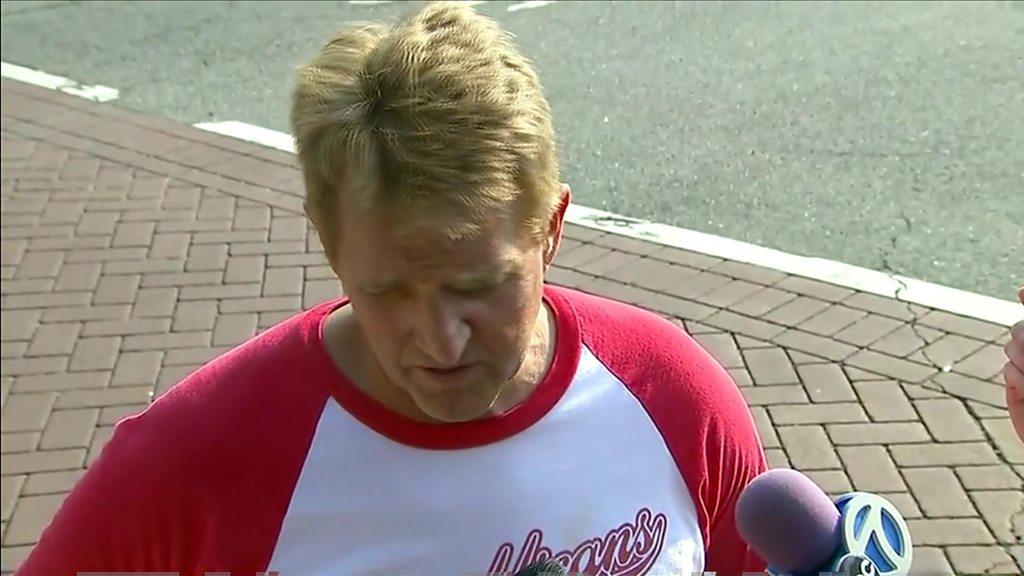
- Published14 June 2017
